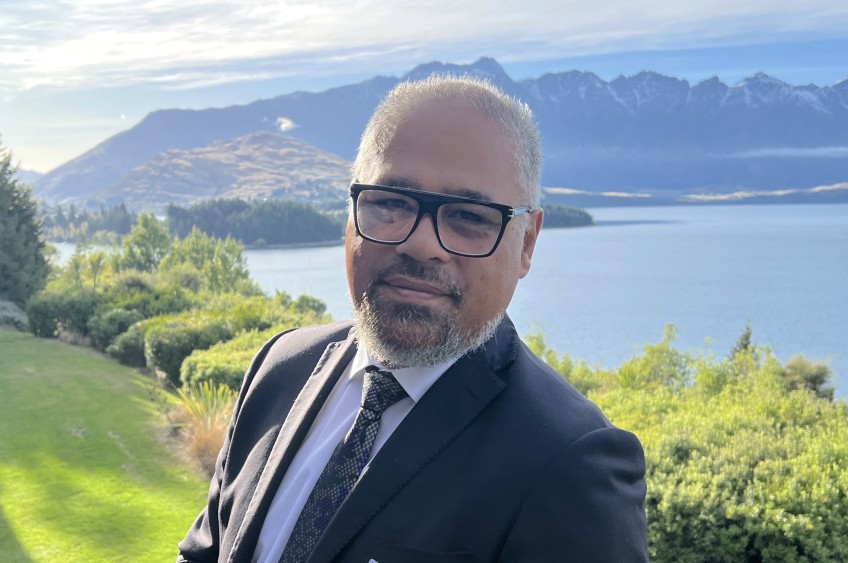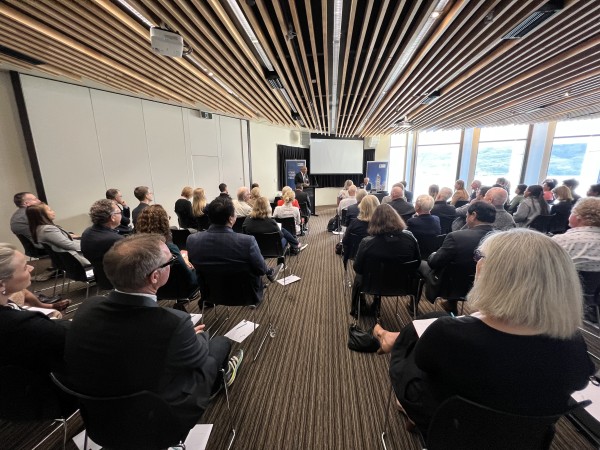New tourism minister grilled on Q'town worker shortage

“I don’t think Wellington understands the size of the problem.”
The comment, made in reference to critical staff shortages, was met with a round of applause from representatives of the tourism industry today in Queenstown when it was put to visiting tourism minister Peeni Henare.
“Why can't we open the borders, rapidly advance our visa processing, and get people in to help our businesses who are screaming for labour?”
The question was put to the minister by Craig Sobo, of the Otago Business School and a co-director of the annual Otago Tourism Policy School, a think-tank get-together of industry movers and shakers happening in Queenstown this week.
Pre-Covid, there were 340,000 temporary work visa holders in the country, mid-Covid it had dropped dramatically to 120,000, he says.
Now, while the tap may be turned back on, people are returning at a dribble.
“If you walk around town, Queenstown, places are not open, they’re not open on Sundays and Mondays, you can’t get staff,” he says.
The minister says the number of visas being processed is steadily on the rise, but he’s hearing loud and clear the message from operators on the ground.
“I acknowledge the challenge. Part of it is the simple strain of the processing that’s being done at the immigration end.
“My job is to take your voice to the Minister for Immigration and make sure we try and find some very meangingful solutions.”
One of those, he says, is opening up other pathways for highly skilled workers to enter the country, and the Government is doing that.
However, the trick to finding meangingful solutions is having the problem well articulated by people at the coalface of it.
“I can’t identify the barrier, if I don’t know what it is. Is it simply processing time? Is it the local office? Is it the person that you are talking to?”
Once a barrier is identified work can begin to “push it over”, he says.
Minister Henare was congratulated by those in the room, including Queenstown Lakes District Mayor Glyn Lewers, who opened the Otago Tourism Policy School, for at least showing his face around town and being available to talk with industry players.
He’s only been in the top seat for a matter of months, although he was the associate tourism minister prior to that, but he’s visited Queenstown twice already and has a trip already in the diary for April.
“This place, I think, is a place of importance to the New Zealand economy, to the New Zealand tourism story, which is why I made it clear to the team I wanted to be seen and engage down here.”
However, his Government has been accused of too much talk, not enough action.
Today, in a series of “up the guts” questions (the rugby analogy ran through this morning’s discussion after it was established Mayor Glyn Lewers and the minister used to be on opposing rugby teams in Northland), the value of seemingly non-stop reports served up by the Government in relation to tourism in recent years came under the spotlight.
There’s the 2019 New Zealand-Aotearoa Government Tourism Strategy, the reports from Parliamentary Commissioner for the Environment Simon Upton around the same time, the 2020 Tourism Futures Taskforce, and, now, the Industry Transformation Plan.
Mr Sobo dubbed them “reports to nowhere”, challenging the minister to justify them and provide examples of meaningful change for people in the sector from them.
“I’m never going to say they are a waste of time,” the minister says.
“There was significant consultation in a number of those pieces, and those pieces of work will continue to inform our narrative and our work plan moving forward.”
But he says he gets “the tyranny of time” – that while the wheels of bureaucracy turn, people on the ground continue to shoulder the stresses of the challenges attempting to be addressed.
“I acknowledge that, actually, for many of our people in the sector, we're a little bit tired of the planning, we’re a little bit tired with the consultation that goes on. And, also in many instances, the failure to do a consultation loop.”
The Government can do better on this he says: “We come in, we pick amazing brains like the ones here in this room, and then we walk away and we don't see them again until the following year”.
He’s committing to maintaining connections with the industry and the region.
“I'm more than happy to come around and meet with as many people as possible here, and in their own home patches, to see whether or not what we have done in the past has worked (and) what we need to do in the future in order for it to work.”

Tourism's movers and shakers have put the minister in the hot seat at an industry think-tank event in Queenstown today, Friday, March 24.
The minister also fielded questions regarding part of the Government’s Covid-19 response – the $290 million Strategic Tourism Assets Programme, and the way decisions were made about how these funds – a mix of loans and grants - were divvied up.
Some in the industry have criticised the process, saying it effectively created winners and losers in what was a tough economic climate for all, and some who received the Government hand-out hadn’t first exhausted all their own lifelines.
The concerns were echoed by the findings of an investigation by the Office of the Auditor-General.
The minister says, although he appreciates the independent advice of the Auditor-General, the Government was working under “pretty exceptional circumstances” at the time.
“The way we pushed money out the door to support communities doesn’t fit within what would be the normal guidelines of the Auditor-General. And, while that doesn’t make any accountant in the room feel comfortable, what I’m saying is that is the fact and that is the truth.
“I've come across this across all the portfolios that I've had in the last four years since the pandemic. And I continue to push back and say ‘You know what? We made, I think, and I believe, the right decision at that point in time. And I'm going to stand by that decision'.”
That, however, doesn’t mean there’s nothing to glean from an examination of those decisions made.
“The learning is how does the system change in order for it to be better and far more responsive into the future.
“Through Covid-19, everyone in this room will know how fast things happened, and the response. We were able to cut through a whole heap of red tape."
But the minister still cautions that transformation is never going to be “something that happens overnight”.
Regardless, he’s promising to continue to listen and be a strong advocate for the sector throughout.
"I'm more than happy in public to challenge our officials, to say 'actually the timing doesn't work on that, it's got to be expedited, or we've got to be showing some clear actions in the very near future'.
"I think we've done already lots of good work, but there's always more work to be done."
Exactly how much money the Government will stump up for that mani, well the minister couldn't share much other than to say we'll have to wait for this year's budget.


























